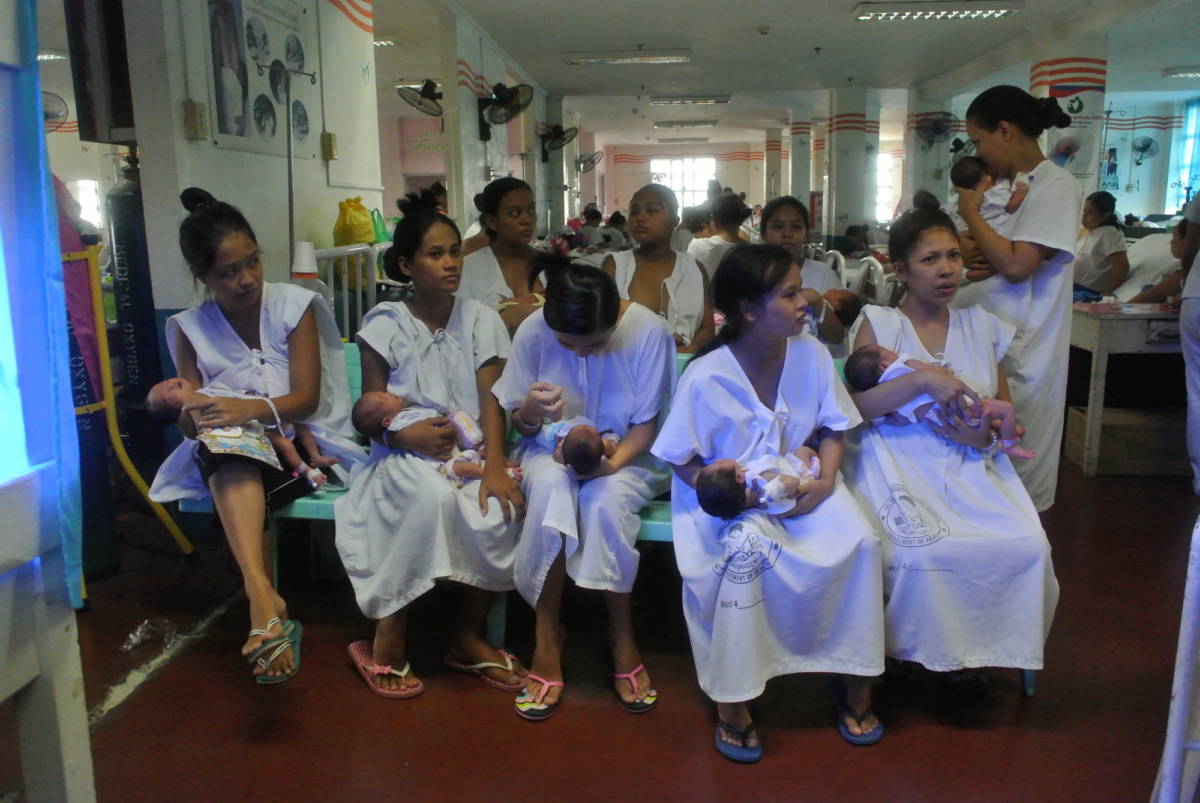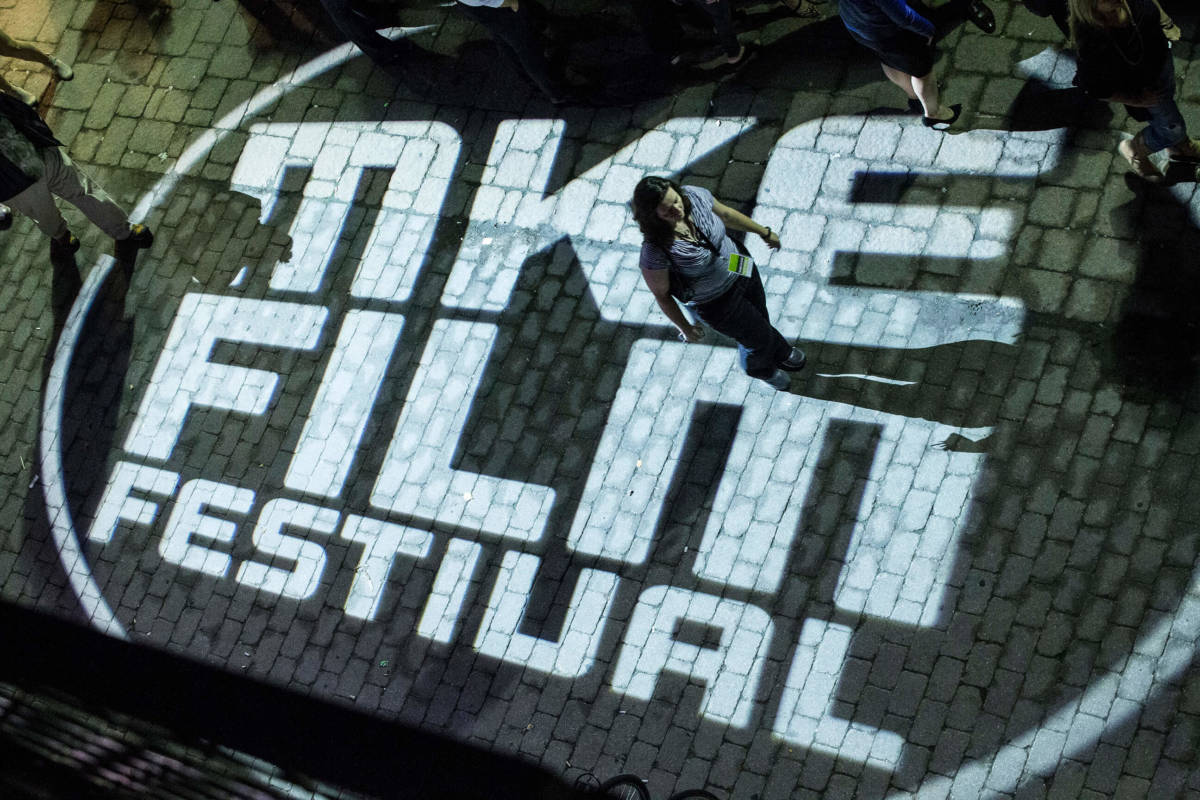Day two of the Milwaukee Film Festival started out with not one, but three panels.

Panel one was on a subject that will obviously be near and dear to me: the state of cinema in Milwaukee. It’s pretty much a given that I know both panelists, but I also consider them friends. Matt Mueller is a culture and film critic at Onmilwaukee.com, and Susan Kerns is a filmmaker who now lives in Chicago, is the co-director of the Chicago Feminist Film Festival, and an assistant professor at Columbia College. Since this isn’t New York or LA (or honestly, even Chicago), Kerns and Mueller both discuss a certain lack of opportunities. People who stay in Milwaukee tend to make a few films and then disappear, while Kerns talks about students in Chicago getting to do work for major shows. Then there are those pesky budgetary restrictions that don’t exactly incentivize people to make movies here, such as cuts in schools that’s led to the departure of a lot of great college professors, and the end of tax credits.
The news isn’t all bad though, since the Milwaukee film community has been growing for a while, and John Ridley, a Milwaukeean who’s now major Hollywood writer, director, and producer, has continually shown an interest in his hometown and building up the film community in it. Beyond local concerns, there’s also the changing nature of movie theaters, and how watching movies is becoming more of a solitary experience rather than a communal one. Near the end, there was a delightful ego boost that I just can’t keep to myself. Without knowing I was in the audience, Matt mentioned my name and the work I’ve done, specifically the Milwaukee Women’s Film Festival, which I founded and directed. I happily announce my presence, and Mueller asks why I’m not on the panel. It’s not something I expected to happen, but I’m not complaining.

The next panel was about documentary filmmakers, namely how they do their job in an environment where alternative facts are now a part of our everyday discourse. It can also be even more complicated than trying to get the truth. As one panelist remarked, his doc actually doesn’t contain any facts. I can’t disagree even though I haven’t seen his film, Love and Saucers, since its subject not only claims to have been abducted by aliens, but to have had sexual relations with them.
Mostly, it was about the usual concerns these directors face, that is, how they must sacrifice emotion for facts, how close to get to a subject, and how much control they have over the final product and how people are depicted, especially during the editing process, which is ideally where the truth will win out. Sam Pollard, director of ACORN and the Firestorm, actually remarked that there was no such thing as the whole truth. As he points out, all films, especially of this type, manipulate. But it was Rebecca Carpenter, the director of Requiem for a Running Back, and the lone woman on the panel who really got me thinking. Out of all of them, she seemed to be the only one who was repeatedly told that no one would care about the films she was making, and who casually spoke about pursuing her passion regardless of the seemingly constant naysayers. I would invite anyone who still doubts we have a ways to go in terms of equality to attend a panel like this.

Activism Then: Recognition

The third panel about activists of the past was ironically the least engaging. There’s good reason to pay homage to the work community leaders have done, but it’s when they speak to the similarities of today, and just how we got to where we are is when things are most compelling. Of course there are the crazy 60’s stories, but far more interesting are more personal stories, such as when one panelist recalls her five-year-old brother being sent to family in America by himself with a note pinned to him, and described how he was welcomed compared to the children from South America who made similar journeys.
Another spoke of just what black communities were like before they were decimated by urban renewal. He described the sense of pride he felt when he walked down a street populated by black people and black-owned businesses. One detail that I find particularly mind-boggling is when he described being able to walk off a job and find another the same day. But one of the most horrifying stories is that of a man who immigrated from Mexico with his family and went to school in an old camp where the government once put people of Japanese ancestry after WWII. The harshest reminders of the purpose it was built for had been removed, but he couldn’t escape the feeling of being a prisoner. The work they did, the organizations they founded, many of which are not only surviving but thriving, Sometimes we forget they came into existence to fill in the gaps between what people needed and what their lives actually consisted of.
Found Footage Festival: After Dark

I’ve been to the Found Footage Festival before, which began when Wisconsinites Joe Pickett and Nick Prueher decided to show off the odd, quirky, and downright weird videos they found at garage sales, thrift stores, and other non-digital sources. But now they’ve decided to get really weird with their After Dark event, which is about stuff too graphic for even them to show during the daytime hours. So if you’re squeamish about seeing actual dicks on a big screen, this is definitely not for you.
There were the expected videos on how to have sex, an instructional video about sex education and how to masturbate, and a hilarious one about how to have cybersex back in the days when a phone call could disconnect you. Surprisingly, there were as many scantily clad men as there are women, and they’re all equally unsexy. It’s refreshing, really. Then there was a home video about a family camping out at an isolated Michigan field for Memorial Day 2000 which quickly descends into the kind of debauchery that includes vomiting, arson, and lots of property damage.
By far the most disturbing was an instructional video about hypnotizing women into having sex with you, which thankfully got no applause. There’s also the downright disgusting, like the one for caregivers where they’re clearly trying too hard to be funny about certain aspects of the job, and a hilarious show for wound care doctors about…different wounds, which comes complete with bad graphics and a wheel the two hosts spin to determine which debilitating injury the show will focus on. The guys’ hilarious commentary throughout was a riot, and somehow made the already bizarrely laughable videos downright sidesplitting. If you can handle gross out in good fun, it’s definitely a night to remember.
Rating: 9/10
Person To Person

This was a movie I saw at Sundance. It immediately struck me as one of those films that was custom-built in the worst way to cater to that crowd, billing itself as retro while hitting all the right indie beats, all the while stereotyping and exploiting its female cast. Needless to say, I was not a fan. So no matter how great the talent is here, which includes names like Michael Cera and Broad City’s Abbi Jacobson, it’s simply wasted in the dismal experience that is Person to Person. For a fuller dose of me eviscerating this movie, click here.
Rating: 1/10
Motherland

The documentary Motherland takes the less is more philosophy seriously, and it mostly thrives for it. Sometimes watching a movie is akin to seeing the camera become an extension of the director, with its subjects either lovingly or disdainfully framed within, but in Motherland, it feels more like the kind of quiet friend who will sits listens without judging. The subjects are the women in the busiest maternity hospital in the world, which also happens to be in the Philippines, one of the most impoverished countries on the planet. These women have come to the hospital because they have nowhere else to go, and the hospital itself is understaffed and under-equipped, struggling to provide basic necessities and care.
The strong religious conservatism that is continually present also means that health professionals have to fight to provide the birth control these women desperately need and all of them want, yet are still hesitant to take on. Director Ramona S. Diaz, who was born in the Philippines herself, not only refuses to judge, she refuses to comment, choosing instead to let circumstances and subjects speak for themselves as the new mothers struggle not only to provide basic necessities for their families but emotional support in a place that often drains them of their best intentions. The hospital itself is often a nurturing place mostly thanks to the support and encouragement they give each other, knowing all the while of the much harsher reality they will have to face the minute they step outside the door.
Rating: 9/10
Some of the coverage you find on Cultured Vultures contains affiliate links, which provide us with small commissions based on purchases made from visiting our site.

